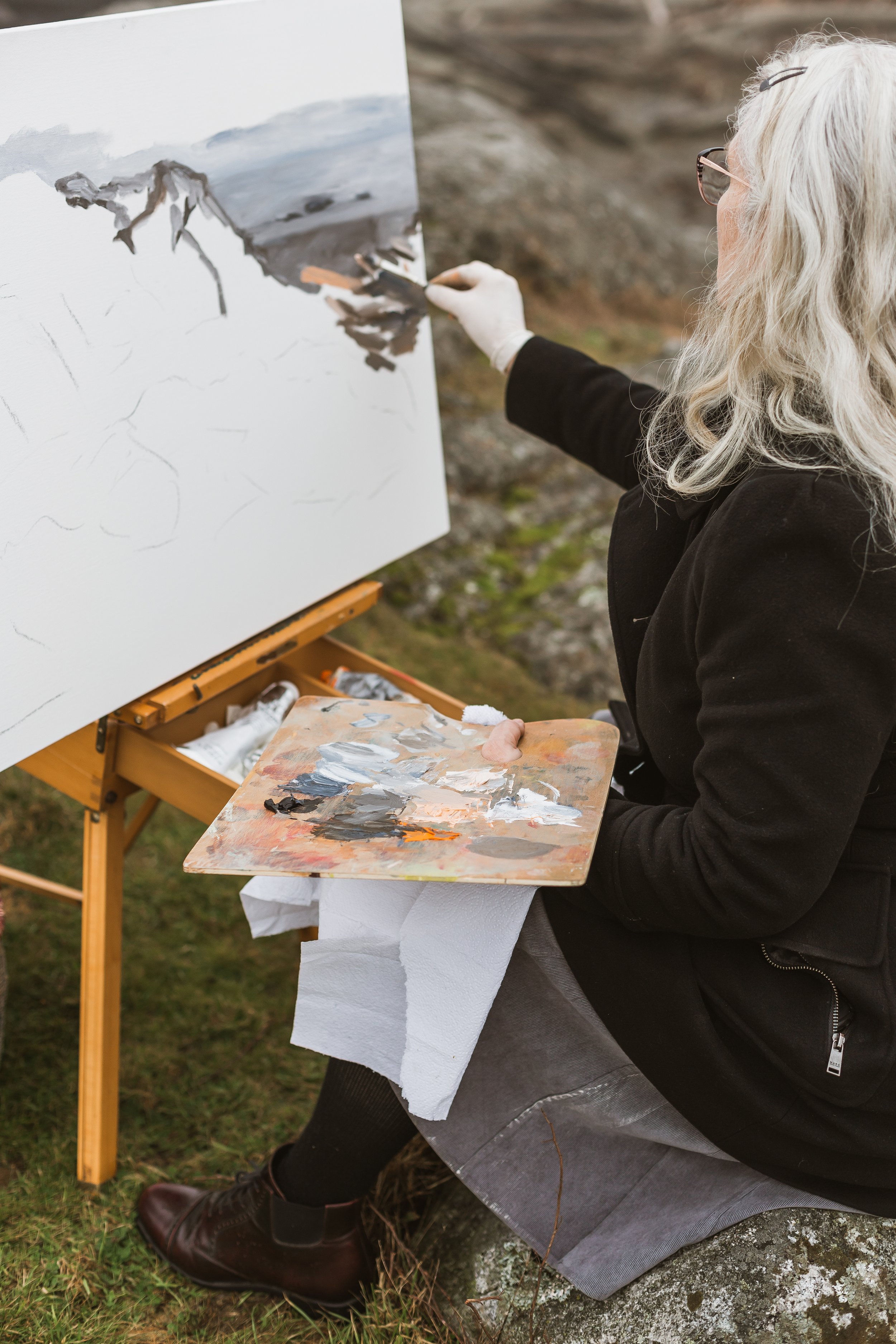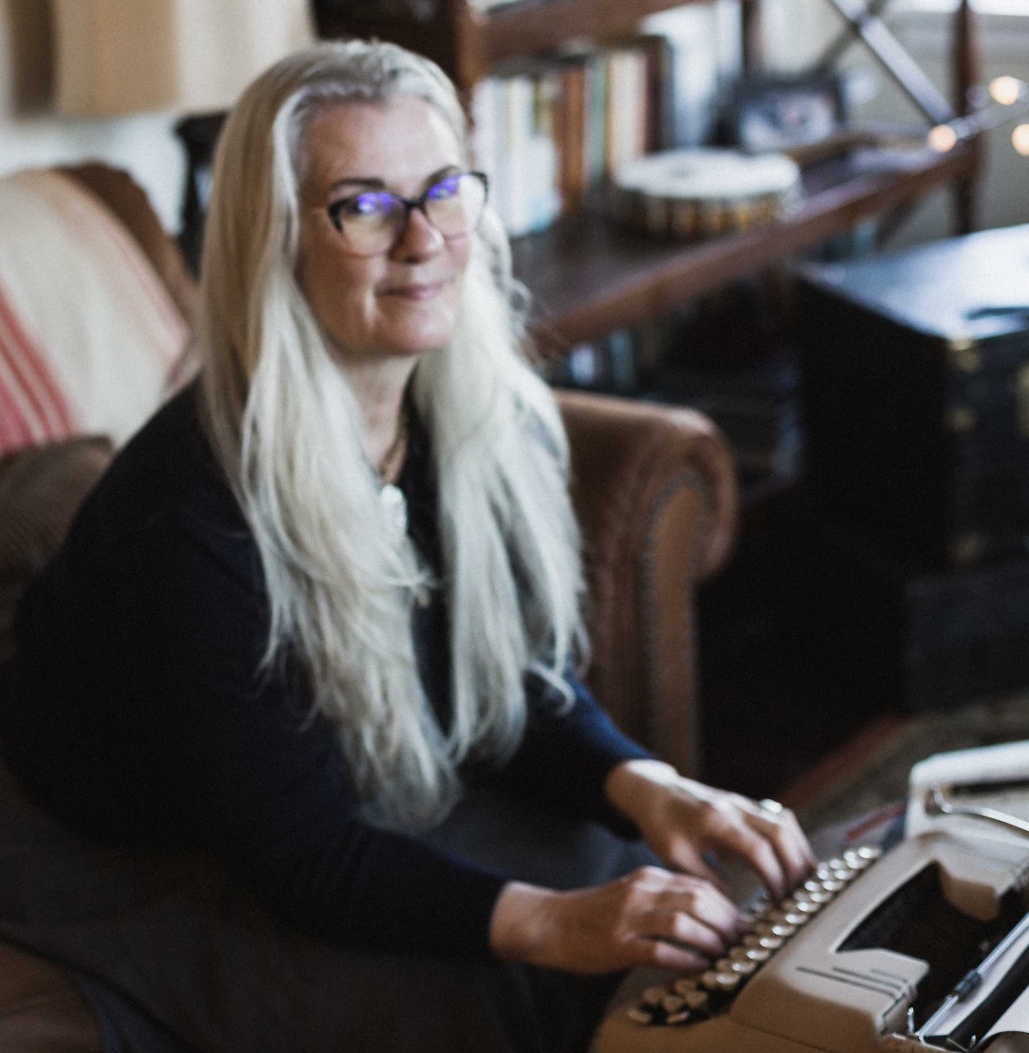How Do I Coach Myself?
The ability to self-coach
is one of the most valuable business skills you can learn
First off, you already coach yourself
It’s maddening. The inner voices are there: Do this, do that, you’re awesome!, you’re not good enough!
Humans constantly “coach” ourselves to do better, to take the next step, to keep learning. It is how we build lives, communities, civilizations.
That’s The Good Coach.
But sometimes The Bad Coach is louder: Why did you mess this up, AGAIN!, you’re not good enough, why is that person better, why are you even doing this?
That is coaching, too.
Every day, we make decisions about what life is going to look like - and which “coach” we’re going to listen to.
I’ve been thinking a lot about this, because in the past,
I have often felt “at sea”:
I often want to scream at the clouds:
Just tell me what to do!
(how about you?)
It is all OK - we all feel ALL of these feelings. We are human.
But finally, truthfully, I have come to the conclusion that:
Nobody’s going to do this for me.
(Does that mean I’m a grownup?)
Not sure, but at least it settles a few things. That even though I have friends, mentors, teachers, and even … coaches, I must learn to coach myself.
Here are 5 ways to coach yourself that I’ve learned over time—and 5 tools to help you do this, too.
So, What Does a Coach Even DO?
You hear a lot about coaches these days: Life Coach, Creativity Coach, Art Coach, Business Coach, Executive Coach. It seems a lot of people want and need help, advice, and direction.
It can seem like smoke and mirrors, magic behind closed doors, tarot in the gypsy wagon.
Does coaching really work? And what does a coach actually do?
And more importantly, how can we do this for ourselves?
Here are a few thoughts about coaching, and some tools that have helped me - to help you do it for yourself:
1. A Good Coach Listens. Deeply.
A good coach listens, not just to the words you are saying, but asks about the thoughts you are thinking, what is the meaning, message, and intention behind them. What caused those thoughts. A coach helps you become aware of thoughts you may not have even known you were thinking.
Sometimes we all need to be seen by another human. To find someone that GETS us and has our best interest at heart. To give a different perspective. Our moms, our best friends, even our writing group or mastermind groups, or art teachers. All those people are here for us. And care. If you don’t have people like that, make it a goal to reach out and be a friend. They are waiting for you.
Even when we see ourselves as a bit of a freak, those people are there listening.
But a coach (and even you, yourself as a coach for yourself) is a little different. A good coach listens, but doesn’t “jump into the pool” with you. A coach keeps a distance on your thoughts so they can help you look at them. But the first step, is just to listen, to get your deepest thoughts out on paper and look at them. This is one way to listen to yourself.
Self-Coaching Assignment #1:
Spend some serious time listening deeply to yourself.
(and get a good journal)
I love Paperblanks journals for their vintage-y gold foil and string bookmarks.
Eugene’s Delacroix’s Journal
Get a good, new journal that you can be proud of. A journal that is personal - beautiful, quirky, colorful, whatever you wish. But something that only holds your “inner work” writings. Then keep it with you or in a place where you can return to it on a regular basis.
Date your entries so you can look back at them and know where you were when you wrote it.
Listen to yourself on the page. What are your thoughts and feelings right now? Light a candle. Spend some time with it.
Just listen to yourself. Deeply.
2. A Good Coach Brings Perspective
After listening, a good coach responds to what we are saying and trying to say with empathy and a process of asking powerful questions. This helps you feel seen and heard. If you tell your coach your deepest vulnerabilities with your work, that person can see what is behind your insecurities and questions, and help you look at the thoughts behind your feelings.
A coach doesn’t just buy into the stories you are telling yourself - and you shouldn’t either.
“Not believing” yourself is SO helpful! It lets you look at your thoughts from a distance to see what is “real” and what is just a made up pattern you keep telling yourself.
Coaches do this by asking powerful questions.
And, they help you ask questions of yourself, to help you have perspective and see things in a new way, like: Where were you this time last year? How far have you already come? Why is this or that a problem for you? What are other ways to think about it?
Self-Coaching Assignment #2:
Spend some serious time in empathy toward yourself,
seeking perspective.
Again, write it out - answer some of those questions:
How far have I come?
What are the good things I am doing right now?
What can I celebrate?
What am I grateful for?
3. A Good Coach Focuses on Results
This is the biggest difference between a coach and a therapist. Coaches focus more on understanding how your current thinking is creating your results, and helps you shift that thinking towards the outcome you want.
Sometimes we may really need a therapist to help us work through deep-seated issues or past trauma, and that is great.
A coach, after listening and bringing empathy and perspective, will spend time strategizing about how go forward and helping you create a plan of action (which may include going deeper with a therapist to understand what’s at the heart of a problem).
““Ok guys, now go sit on the bench, watch from the sidelines, and think about how you messed up the last game while the other team wipes up the field with us. Break!””
A coach helps you understand how your current thoughts are creating your results, determine the game you are playing and helps you strategize on how you can shift your thinking to create the results you want.
We often get so stuck in the day-to-day, that we actually forget to even think about what we want the future to look like.
Self-coaching Assignment #3:
Spend some serious time thinking about
the outcomes you want.
I used to write about all the crappy stuff going on in my life in my journal.
Do you see a pattern here? I finally did. After I started focusing on the good things, setting goals, thinking about the outcomes I wanted to see, and started using it as a space to think about solutions, things started to shift in my head - and my life.
(Not that I’m totally there yet!)
Remember: It’s a Process!
4. A Good Coach Offers Accountability
I struggle with finishing the many projects I start.
What about you?
That’s my biggest challenge. Finding a process that doesn’t give me anxiety and helps me complete things and follow through.
When I finally broke down and got a coach to help me finish my website and set up my business (thank you Brittany Torres at Phoenix Brand Management!), it was an investment in getting past some serious blocks, having someone to hold me accountable, and getting me on track when I kept asking myself :
Why am I not doing the things I love?
I had to do some serious work:
Listen deeply to my thoughts, be aware of how my thoughts were creating my results
Coach myself to shift those thoughts and gain perspective
Focus on RESULTS, and,
Learn to build accountability and trust myself
This is how it worked for me.
Since I have actively sought out communities of like-minded artists and entrepreneurs over the last couple of years—my Art MasterMind group, my Co-Dependables writing group, Kimberly Trowbridge’s Advanced Seminar, Patrick LoCicero’s Critique Group, my Moon Painters Group—I have made more progress than years before.
I know you can too.
Self-coaching Assignment #4:
Find an Accountability Partner or Group - and most importantly, be accountable to yourself.
Learn to trust yourself by taking small accountability steps.
Whether online or in your community, a class or a like-minded colleague or friend, make it official. Give it a name. My writing group, the Co-Dependables, lets us laugh that we are “in recovery” from not writing. We use Julia Cameron’s The Artist’s Way and other tools to guide each other.
If you keep setting goals in your journal or your calendar and NOT doing them, try setting goals you have already accomplished! Remember - EVERYTHING you do is a choice:
Already Done Goals:
I will get up today
I will pay my bills
I will paint
When you realize you already HAVE done these things, you can begin to trust yourself to do them, then try something bigger.
Let these tiny, baby-step goals build to something like:
I will get up today 30 minutes earlier
I will pay ALL my bills on time
I will spent ___time painting, focus solely on this work, to make it the BEST I can
See how these last three are NOT that much different than the first three? But they may seem bigger.
Use that “elevator goal” approach to grow your goals and your trust in yourself.
Try it right now!
Which brings me to my last point:
5. A Coach Brings Tools
Artists are resilient problem solvers who must constantly coach ourselves, even though we may not realize it. For me, I finally made a serious commitment to use my tools. I write in my journal almost every day, I meditate at least for a few minutes a day to calm my spinning mind. I set goals. I go to bed early and eat right. I psyche myself up to take on the next artistic hurdle on the canvas and in business.
I’m ALL IN.
I’m investing in myself, my own growth, my business.
Self-Coaching Assignment #5:
Find One New Tool
Buy a new journal. Take a class to learn a new skill. Invest in coaching (my personal favorite, of course!)
Something NEW to break something loose in your practice and process.
Find the Right Tools for You
I have a created a few helpful tools for artists, creative business owners - and just people who want to grow - that I would love to share.
After you access these, you’ll be on the list to get the latest new tools I share.
The Upshot
If you feel the same anxiety and confusion that I did - about your art and your art business, (or whether you should even HAVE one) - I feel for you.
I have been there, and not too long ago.
But I’m working through this process. I am ALL IN!
I will continue to have a coach. I will make that essential investment for me and my life and art and business. But what my time with coaches and my time as a coach - and as a struggling human and artist has told me:
I will also actively coach myself. And others.
I have made a commitment to help others on this same path:
I commit to be a catalyst for you, artists, to understand and develop your own innate creative processes,
vision, strategies and goals for your art and business.
Most recently, I’m getting certified as a Life Coach through the Life Coach School (an amazing program!).
I’m taking action with new tools I’ve acquired, systems I’ve learned, and methods I’m developing myself - mostly to aid you, fantastic artist, in developing your OWN methods.
That’s what my coaching method does - It helps you understand and coach yourself.
So we can spend more time creative magic at the easel—but with more clarity, more purpose, more confidence in our ideas and our body of work and our business plans and vision for our future.
(Ok, except for that amazing weekly session where we get to talk about goals and strategies, plans and new ideas.)
What’s Next?
If you are interested in exploring what coaching might look like for you, I invite you to connect with me:
Sign up for a free 50-minute consultation, where we can talk about where you are now, what you need, and how we might work together.














